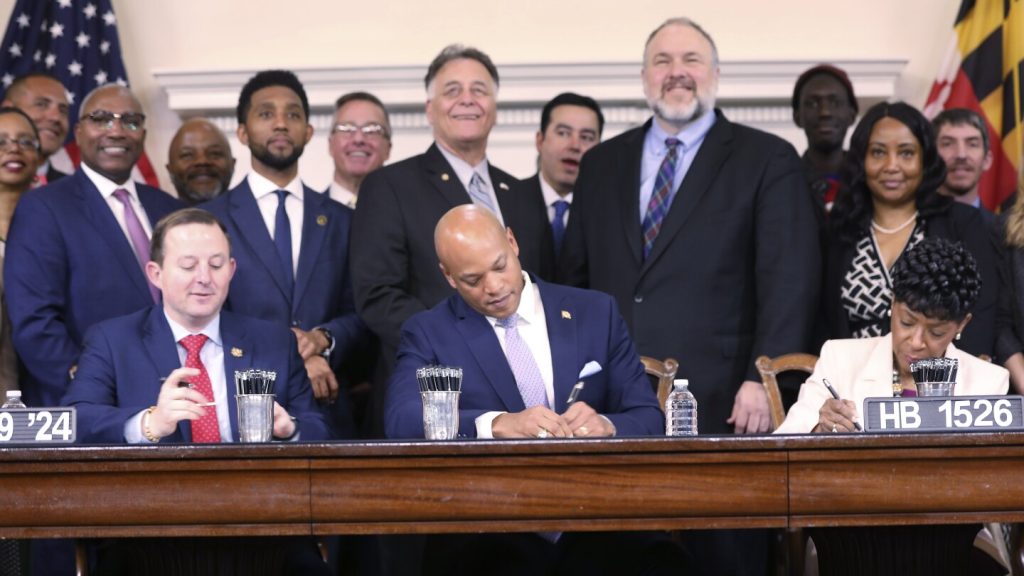The collapse of the Francis Scott Key Bridge in Baltimore has prompted Maryland’s congressional delegation to seek federal aid to cover 100% of the costs for building a new bridge. The bridge collapsed after being struck by a cargo ship, blocking the port’s main shipping channel. Senator Ben Cardin has announced that a third channel will open this month to handle the majority of traffic into the port, with plans to have the entire channel reopened by the end of May. Legislation will be introduced to clarify that federal funds will cover the full cost of replacing the bridge, similar to the federal coverage seen in previous disasters such as the Interstate 35W bridge collapse in Minnesota.
Cardin has expressed optimism about bipartisan support for the legislation, noting that Republicans have been open to the idea of using federal funds to rebuild the bridge. Representative Andy Harris, Maryland’s lone Republican member of Congress, joined his Democratic colleagues in supporting the effort, emphasizing that tragedy transcends party lines and the solution should be a bipartisan one. While any funds recovered from liable third parties or their insurance will go towards relieving federal taxpayers, the focus is on proceeding with the bridge replacement without delay. U.S. Transportation Secretary Pete Buttigieg and President Joe Biden have both pledged to ensure that the federal government covers the cost of the new bridge, although the exact amount remains unknown and will depend on design considerations.
In the aftermath of the bridge collapse, six workers, all immigrants from Central America, tragically lost their lives while two others survived. Authorities have been working to recover the bodies of the missing workers from the Patapsco River. Maryland Governor Wes Moore has emphasized that the state is committed to supporting the families of the deceased workers and providing closure for them. He signed legislation to assist port employees affected by the bridge collapse, utilizing the state’s rainy day fund and reserves to prevent layoffs at small businesses and incentivize companies to return to Baltimore’s port once it reopens. Additionally, a scholarship program has been established for the children of transportation workers who have died on the job since 2022.
The federal government is committed to making sure that the federal taxpayer is reimbursed for the cost of the new bridge, but efforts will not be held up by insurance litigation or liability determinations. While the exact cost of the replacement bridge is still being evaluated, it is clear that the current bridge does not meet the needs of the increased traffic and cargo volume since its construction in 1975. Plans for the new bridge will need to consider structural integrity, height requirements, and other factors to ensure that it can accommodate the current demands of the port of Baltimore. The tragic incident has highlighted the importance of infrastructure investment and the need for swift, decisive action to address critical transportation challenges and ensure the safety of workers and the efficiency of maritime commerce in the region.


